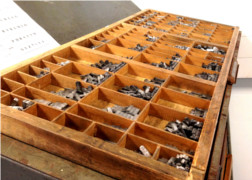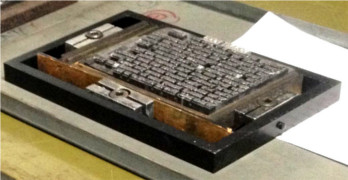Study with CTS
DRAUGHTS 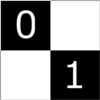
The 'Digital Research And Understanding in the Guided Humanities Training Symposium' (DRAUGHTS) offers specialist training, guidance, and expertise-sharing in digital research methods for the Humanities. Aimed at De Montfort's graduate students (research and taught master) in the disciplines of History and English, it provides hands-on training and expertise in new methods for extracting information (and thence new knowledge) from new digital sources.
Whether you just want to understand the various file formats used in your Humanities research, or to explore advanced text- and image-searching techniques, or find out how best to store your research data, or want dive into data-mining and Humanities computer programming, the DRAUGHTS events will give you the cutting-edge digital expertise thats enables age-old Humanities techniques for knowledge creation to be applied to 21st-century questions and resources. Follow the link on the left to see our programme of events in autumn 2017 and spring 2018. The events are free to attend and food and drink are provided.
BA, MA, and PhD opportunities
The CTS has well-equipped labs for teaching and research in all aspects of textual scholarship from the most traditional to the most cutting-edge. The labs support letter-press printing using movable type, the digitization of manuscript and print materials, has optical and digital tools for textual collation and stop-press variant detection, and the hardware and software for computational stylistics to be applied to problems of authorship attribution and literary criticism. The members of the CTS are skilled in literary-historical scholarship and textual editing across all periods from the medieval to the present day.
The CTS offers taught courses at BA and MA level with existing DMU degree programmes as well as supervision at PhD level. See the links on the left for details about studying at the CTS at each of these levels.
Our printing workshop
The CTS printing workshop, used in undergraduate and postgraduate teaching, is equiped with a fully working Albion iron letter-press.
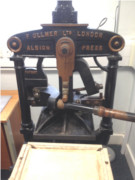 << Our press (click images for larger versions) >>
<< Our press (click images for larger versions) >> 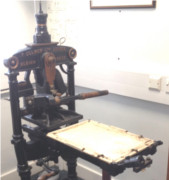
Students set type by hand using, working letter-by-letter and line-by-line to build up pages of type that are placed together in a frame called a 'chase', locked up with 'furniture' and put on the bed of the press.
Professional hand-typesetters, called 'compositors', used to produce several pages of accurately set type in a single working day. We take a bit longer. The following picture shows one of Shakespeare's 14-line sonnets that was set by undergraduates on the undergraduate module 'ENGL3096 Text Technologies' over a period of several weeks:
It took time, but the result was an accurate printing of the poem and a lot of practically acquired knowledge of just what can go wrong in the process invented by Gutenberg 565 years ago. Here is a video of CTS Director Gabriel Egan and his students doing some printing.
Our computer workshop
The algorithmic approaches that are currently revolutionizing textual scholarship are rather daunting for people from an arts and humanities background with only casual and informal dealings with computers, encountered primarily as word-processing machines. To help literary and historical students learn how machines store and process digital texts and to teach the elements of computer programming, the CTS has a collection of historical computing equipment including paper-tape punches/readers, magnetic tape drives, dumb terminals (VDU and Teletype), and 8-bit microprocessor CPUs.
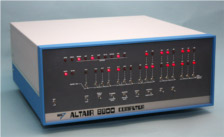 << CPU ... Teletype terminal >>
<< CPU ... Teletype terminal >> 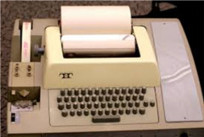
These old machines are valuable because the internal workings of their 8-bit processors are easy to understand and because the peripherals--dumb terminals for operator communication and external drives for mass storage--really are 'peripheral' to the main CPU and they have to be plugged and Input/Output routines have to be written and entered.
Our Altair 8800 computers have 64k of internal 8-bit memory but no permanent storage: everything comes in and goes out on paper-tape or magnetic-tape or through the operator terminal. Students on the undergraduate module 'ENGL3099 Textual Studies Using Computers' learn to program the Altair 8800 in machine code or the high-level language BASIC before moving on to learn XML.
Video Display Units (VDUs) give command-line access to the operating system for a conversational interaction with the CPU instead of the Graphical User Interface and mouse interactions common in modern computers.
Here is a video showing some of this equipment in operation, including the booting of the Altair 8800 computer.

